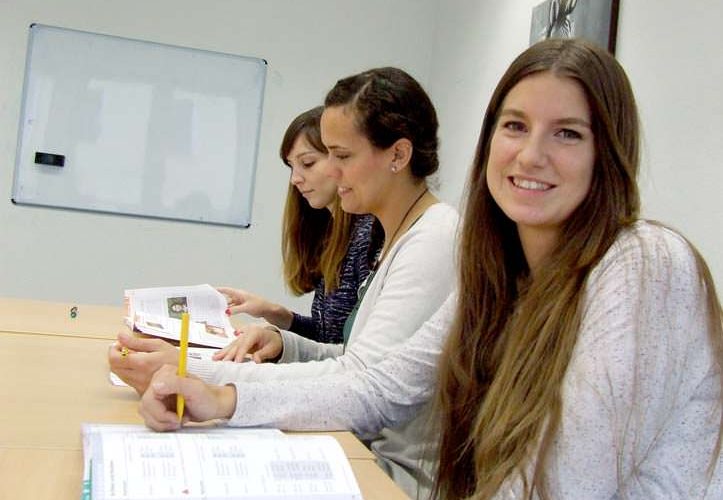Machen vs. Tun: The Differences and Explanation
These two verbs both mean “to do” in English making their distinction extremely difficult to recognize for native English speakers. Although the difference between the two is small, there is still a difference between them. The verb ‘machen’ is used more often than its counterpart, ‘tun’. So, when do you use ‘tun’ instead of ‘machen’? Machen vs. Tun: The Differences and Explanation.
When do I use the verb machen?
Machen is used when someone completes, builds, or cooks something. It usually speaks about the process.
Examples:
- Ich mache viele Fotos. -> I take many photos.
- Ihr macht einen Deutschkurs. -> You all take a German course.
- Heute mache ich Pizza. -> Today I am making Pizza.
How does it conjugate?
- Present: Ich mache, du machst, er macht…
- Preterit: Ich machte, du machtest, er machte…
- Perfect: Ich habe….gemacht, du hast…gemacht
When do you use the verb ‘tun’?
The verb ‘tun’ can be used in a universal context. It can be used when doing an activity or something in general.
Examples:
- Was tust du? = Was machst du? -> What are you doing?
- Heute will ich zuhause bleiben und den ganzen Tag lang nichts tun (oder nichts machen. -> Today, I want to stay at home and do nothing all day.
- Ich hätte alles für sie getan. -> I would have done everything for her.
How does it conjugate?
Tun is an irregular verb!
- Present: Ich tu(e), du tust, er tut, wir tun, ihr tut, sie tun
- Ich tu(e): It is usually pronounced as ‘ich tu’. The ‘e’ often times is silent
- Preterit: ich tat, du tat(e)st, er tat, wir taten, ihr tatet, sie taten
- Perfect: ich habe… getan
Noun: Die Tat: the action, deed
Know that there are some cases when only ‘tun’ can be used.
Example Sentence Verb Verb Definition
- Mein Kopf tut weh. Wehtun to hurt
(My head hurts)
- Die Massage tat wirklich gut. Guttun to feel good
(The massage felt really good.)
- Das hat nichts mit Magie zu tun. Etwas zu tun haben mit to have to do with
(That had nothing to do with Magie)
- Oh, tut mir so Leid tun/leidtun to be/feel sorry
(Oh, I am so sorry.)
- Wir tun (so), als ob wir Touristen tun, als ob to act as if..
wären.
(We act as if we were tourists.)
- Es würde gut daran tun, sich mit tun gut an to be good/ do well
dem Professor anzufreunden.
(He would do him well to make friends with the professor.)
In addition to these circumstances, ‘tun’ can be used with adjectives:
- Wir wollen immer Gutes tun. We always want to do good.
- Ich will nichts Verbotenes tun. I do not want to do anything forbidden.
- Diese Organisation tut viel This organization does a lot of useful things for the city.
Nützliches für die Stadt.
‘Machen’ is very useful especially when speaking about activities:
- Ihr habt eure Hausaufgaben You all have already done your homework.
schon gemacht.
- Wie machst du das? How do you do that?
Ich will das auch können! I want to be able to do that too!
Well, quickly said….
When it comes to the verb ‘Tun’, it is best to learn fixed phrases of when it is used. It takes some practice, but with time you will have a gut feeling of the differences and uses!

